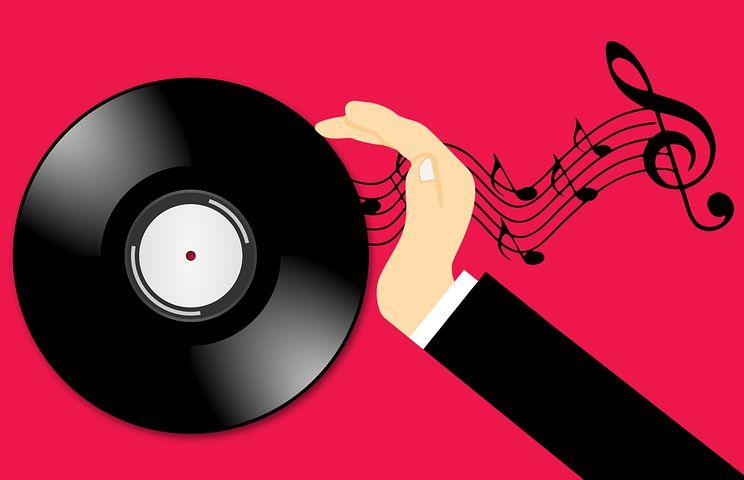20 Lucrative Business Niches In Nigerian Music Industry
Music is lot more than it used to be, month by month, day by day, century by century from live instrument to studio engines, sound equipment, involvement on the internet. The social media has made music a shooting star, just how it helps Africa music evolves the oceans. For the sake of this article, I want to point out some lucrative business niches in Nigeria music industry, which obviously applies to some other countries as well. Below are the niches;
1. Setting up Your Own Record Label:
If you want to make money in Nigerian entertainment industry, but you don’t have much in the way of musical talent, you can start your own independent record label. This is also an option for upcoming musicians who are having trouble getting signed with a major label deal. You might want to read about How To Start A Record Label In Nigeria And Make Money
2. Writing Songs For Artistes:
Song writing in the music industry is one, if not the major and a critical aspect of music. writing for artistes is surely a big niche in this industry, and no doubt a profitable one. Most songwriters are ghostwriters, they are often used to write songs, lyrics, and instrumental pieces. When a record company wants to market an inexperienced young singer as a singer-songwriter, or help a veteran bandleader coping with writer’s block (or a lack of motivation to finish the next album), an experienced songwriter may be discreetly brought in to help. In other cases, a ghostwriter writes lyrics and a melody in the style of the credited musician, with little or no input from the credited musician.
3. Booking Agent:
An Artiste Booker, or Booking Agent, works in the music industry to book performers for concerts, gigs and other live music performances. They often schedule performances and negotiate with the artistes directly or with booking representatives or producers to arrange terms of contract, dates, and fees. They may also audition new talent. Artiste Bookers or Booking Agents may either be employed in-house or work independently. They may specialize in independent bookings in a particular musical genre such as cabaret, chamber music or rock or pop music. An Artiste Booker or Booking Agent may even sponsor, manage and produce the whole event.
A Booking Agent is responsible for booking live performances including concerts, gigs, tours and radio and TV performances for artistes, bands, DJs, Choirs, orchestras and other musical ensembles. They are responsible for developing the musicians’ or artistes’ career with regard to their live performance. A Booking Agent, or Artiste Booker, will work closely with the artistes’ management, promoter and record company. Sometimes, especially with new and emerging artistes the manager will combine their role with that of Booking Agent. They will usually work on a whole tour rather than just one gig. They will often require an exclusive contract on touring activities, especially if the artiste is signed.
The Agent will be responsible for negotiating and issuing contracts, collecting deposits and sending out promotional material. They may work freelance, be part of the band, or work for a music company or agency. They may be responsible for one artiste, band or musical ensemble, or for several. They will often work on a commission basis and usually get around 10 – 15% commission of the artiste’s fee.
Some Booking Agents will provide all styles of artistes and musicians ranging from classical to dance music and cover a range of events including bars, clubs, local, corporate and trade events. Others provide entertainment for cruise ships, theaters, hotels and international venues. Some Booking Agents will specialize in musicians and producers working in particular genres, such as rock, pop, dance, urban or acoustic.
Many Booking Agents will offer a portfolio of services for their clients, including artiste management services, or marketing, distribution and publicity campaigns for a variety of media.
Excellent knowledge of the music industry and keeping in touch with current music trends is essential, as is building up an excellent network of contacts in the music business. There are no specific professional qualifications required. Building up experience in the music industry is important, this can be done by working in different capacities — any work that brings you music business contacts and keeps you in touch with the industry will help. Many Booking Agents are musicians who have built up their expertise on the job working for themselves, their own ensembles, bands or for friends who are musicians.
4. Disc Jockey:
If you are picking DJ as niche then you have to pick a niche for being a DJ also, there are five basic niches in disc jockeying. DJ requires different approach when you want to make living outta it, Knowing which one you fit in, or want to be, will make achieving the goal easier.
(a). No limit all rounder:
An all rounder no limit disc jokey plays anything he can to make the dance floor go gaga (crazy), he has an enormous music collection and is in no way principal in playing all genres. He is able to read the crowd, and has a vast knowledge of how people react to different kinds of music.
(b). Crebible All Rounder:
The allrounder who DOES want to educate his crowd. This DJ is usually well-trained, and educated enough to know which tracks from the last four decades are ‘credible’. He will for sure play ‘Sweet Dreams’ by Eurythmics but will throw his drink at you when you ask for ‘Paradise By The Dashboardlight’. He is a crowdpleaser, but will take any chance he got, to throw in a lesser known track.
(c). One genre Dj:
These DJs sticks, live and breathes a certain genre of music or related ones. Narrowing yourself to this genre makes you less employable as a Dj in general. But, having a distinctive style makes you recognizable. So reaching any kind of fame comes closer, as well as having a dedicated fan-base. To beat the competition as a genre DJ, most important is to play as distinctive and original as possible. As most of your colleagues draw from the same pile of songs, you make the difference by track choice and timing. And be sure you can improvise, to anticipate the crowds’ response.
(d). One genre with extras:
Specializes in one genre, but is not afraid to throw in something surprising when he feels he should. This could be a house DJ, famous or not, who plays his ‘own’ sound for hours, but is still ready to blend a ZLATAN IBILE track in when heavy weapons are necessary to keep the crowd awake. Could also be a respected R&B hero who plays the Afro Rap track for some extra energy.
Sticking to one genre means your are true to your own taste of music, but it makes work as a DJ harder to get. Being flexible to include some related genres to keep your set accessible, makes you still employable in a wide variety of clubs.
Be great in the style you really want to be good at. But, never close your eyes to what raises the roof in other genres and throw in a surprise like that when you think you should. All famous DJs of this kind, reached that mainly through their own releases.
(e). Niche Dj:
This DJ sold his heart to a specific sub-genre or just one kind of vibe, energy level or BPM-range. Can be a someone who plays only the darkest of the darkest Electro, but also an R&B lover who only plays tracks from ‘84 to ‘89
From easy to get work, to very hard. Making a choice for a certain niche makes career planning easy because your goal is clear. Plus, if you´re good, everyone will book you when they need a DJ in this niche.
5. Band Management:
Its a fun and demanding job that requires juggling lots of different tasks at once, the band manager is kind of like the band’s shepherd. A modern-day band manager will wear many hats. Usually, he or she will be working on both the creative direction and business side of the band. In some cases, a band will be assigned a manager by a record label, other times a manager works directly for the band. Depending on the size of the manager’s operation (does he/she have staff, etc.), the manager may be handling more than one client at a time. But some prefer to work with just one band.
Band management requires a lot of cold calling and pitching for opportunities. You’ll have to network, be willing to be persistent when people don’t return your calls and generally be comfortable with approaching new people. As a manager, you’ll have to do a bit of business hustling, so if the thought of calling a promoter again and again until they finally hear you out doesn’t appeal. Honing people’s skills
As a band manager, you’re going to be present for some pretty fun times, including times that last well into when work is supposed to be going on. It’s your job always to make sure the work gets done, even if the band is having a wild old time. You need to make sure everyone is up when they need to be, at interviews, shows, sound checks, load-ins, and everything else, and you need to make sure that the band gets on the bus when they need to. In other words, someone has to be the grownup. You’ve got to be prepared to stand your ground and not overindulge. Be responsible
Most jobs require a bit of juggling, but band management is in a league of its own. This is especially true when you’re working with a band that is in the early stages of its career and doesn’t have a team in place. Once there is an agent handling booking, a label or distributor handling sales, a PR company handling press and radio, and so on, you’ll be in the position of making sure everyone is communicating and doing their jobs. Before that, you’ll be trying to assemble the team while doing all of their jobs yourself. It’s hectic, and you can’t let any one thing fall by the wayside for too long.
6. Recording Studio:
Owning a recording studio in Nigeria as a musician gives you a lot of edge above others, especially when you are upcoming, it saves you a whole lot of things money, time, embarrassment, inspiration for example, have an awesome idea for a song at three in the morning? Well, too bad, because the recording studio is closed. From a psychological standpoint, recording on your own can be a really empowering experience. It might seem overwhelming at first, but you’ll pick up more and more as you continue through the process. Before you know it, you’ll have developed your own, signature sound. Depending on your skill level, interests, and the way your studio is set up, you might eventually be able to charge other musicians to record.
7. Rehearsal Space Rentals:
Musical bands and performers have always had a difficult time securing space for rehearsing their acts and numbers, and starting a business that rents rehearsal space to musicians by the hour, day, week or month is a fantastic new enterprise to get rolling. Ideally, the business will be established on leased premises in an industrial building so that noise won’t be a concern or become a problem. Additionally, the spaced that’s leased for the rehearsal space should also be subdivided into a few smaller rehearsal rooms to accommodate more than one customer at a time. Typical customers will be anyone in the music industry–from musicians to singers to music producers.
8. Music Event Planner:
Live music industry in Nigeria has had and will always have a rocky time. Music event will surely be a blast in post-Covid. so, being a music event planner is a money making niche in the music industry in Nigeria. this are what you need to do;
Research is vital to the success of any kind of event, and live music is no different. There’s a whole lot to think about: the acts, the venue, the equipment, income generation; the list goes on! I’ll cover a few of these below, but a good grounding in events management from an accredited training course can really help you to feel confident and in control – increasing your chances of success.
It’s exciting to think about one day organizing the kind of large-scale events you’ve enjoyed in the past, but by starting small you’re giving yourself a chance to learn your trade in a less risky environment. Building your practical experience counts for a lot. It’s also one way of making great new contacts that can be the key to success later on. For now, you want to think locally rather than nationally. Find out what’s going on in your nearest large town or city: a good local entertainment guide, either online or in print, can give you a great overview.
So now you’ve got a clearer idea of what’s going on and where, the next step is to find musicians! Whether you’ve a friend with an awesome band or you’re planning to go and scout for new talent, here are some top tips: Find acts within similar genres – you don’t want a solo singer-songwriter to open for your brother’s metal band, however hilarious you think that would be.
Three (or four) is a magic number – for local gigs you’ll want to have more than a headline and a support act to make sure you’re drawing in enough people. Not too many though: you’ll run out of time (or space)!
Budget for travel expenses – many smaller acts are happy to play for free in return for the chance to sell CDs or other merchandise, but providing for their travel expenses is a gesture of goodwill that will make them feel appreciated. Happy musicians = better music!
Still got that local entertainment guide? Super! You’ve got a list of the busiest, most popular venues in your area at your fingertips. Reality check: to get into many of them you’re going to need a solid track record for organizing great live music events. But everyone has to start somewhere – and we’re starting small, remember? Small bars, clubs and pubs are your friends: if you can guarantee them a boost to drinks sales on a normally slow night they’ll likely be happy to give you a shot (a chance, not, you know… an actual shot).
Yes, your acts will probably tell their fans to come along, but they’d like you to put the word out too. It’s vital to get your event in that local entertainment guide, and put up posters (even if they’re cheaply homemade) where music lovers will see them. Don’t forget social media: and get your acts to share any events or posters you upload to increase their reach. A busy night is a great night for everyone involved and sets you off on the path to greater success!
9. Music Teacher:
Having the ability to teach singing and to play musical instruments is valuable to get started as a music teacher. Thinking outside of the box can also help you as far as being a compelling instructor. The more you can teach, the more likely students will flock to your studio. Maybe this is the least enjoyable aspect of becoming a Music Teacher, but it’s extremely important — almost as important as being proficient at the instrument you teach.
A big part of the business side is finding students. Maintaining a website or social media page are great options – although time-consuming, both current and prospective artistes want to see a teacher is posting relevant content as often as they can. Don’t forget about marketing yourself offline, too. Creating eye-catching flyers with a memorable logo is just one way to prove you’re professional and really set you apart from the competition. Although they may seem old-school, ALWAYS have business cards with you…aside being an instructor, you can as well make money as a Music Teacher just by judging/assigning musical related contests e.g Talents shows, project fame etc.
10. Talent Manager/Hunter
Artistes managers, who are also called talent managers, serve as the business managers of musicians. They handle negotiations and other business affairs of an artiste or band. Since the musician needs to focus all his/her attention into making music, the artiste manager serves as the promoter, agent or accountant. Artiste managers also handle bookings, assist in promotions and perform production-related tasks. They ensure tours, gigs and other bookings are paid, unless otherwise agreed by the artiste to perform before payment.
Duties:
Artiste managers are responsible for collecting revenues, fees or other payments stipulated in contracts. They hold auditions and interviews to discover potential clients, communicate with artistes to develop marketing plans or tour goals for their music career and to recommend and implement actions to achieve them. Artiste managers also initiate contacts with individuals and organizations that may help in the promotion of their client’s career, negotiate and seek ex-deals, prepare lodging, travel, food and other needs for their clients’ out of town gigs and performances. They maximize sales by implementing direct marketing and advertising activities, negotiate with promoters and other people of contractual rights and obligations; as well as inspect equipments and facilities ensure they meet the artiste’s specifications. Most artiste managers book interviews for promotion, hire coaches and trainers to help artistes with dancing, voice, translations and others, and perform daily bookkeeping take and complete financial obligations like taxes.
Education and Training Requirements
Most artiste managers do not need academic training to qualify for this position. Although a college background is helpful since there are courses offered in music business and music marketing, many artists prefer managers with extensive industry experience and networks.
Knowledge and Skills Requirements
An artiste manager must be an expert on the in and out of the music business. Good artiste managers do everything they can to make their clients successful. They possess excellent communication and interpersonal skills, public relations skills, marketing and advertising skills, negotiation skills, leadership skills and basic computer skills. Artiste managers must be friendly, independent, aggressive, and has the ability to work as part of a team.
11. Music Promoter:
A music promoter is someone who publicizes and promotes performances. Promoters organize gigs, book bands or artistes and advertise the shows to bring in paying attendees—and profits. The music promoter works with an artiste or a band manager to plan an event. They agree to a date and look for an appropriate venue.
The promoter negotiates any fees for the artiste and then publicizes that event through radio, television, digital, or email advertising. The music promoter ensures the artistes have everything they need offstage and on, from hotel rooms to sound checks.
The promoter typically creates a contract outlining the terms of the agreement, including fees owed to the promoter, date and time of rehearsals, the length of the band’s performance and any other demands.
A music promoter usually works in a regular office and may have an assistant or a team. Some opt to meet with clients off-site, at restaurants or other entertainment locations. Others do most of their work online or over the phone.
There isn’t a formal education path required to become a music promoter. The most essential skills are a love of music and business savvy, so a degree in business or marketing can be very useful. The ability to negotiate effectively is essential, as you will need to bargain with artistes, venues, hotels and more.
Understanding different aspects of the business is important. Read music trade magazines to understand the latest developments and see how other events are put together.
If possible, try to get an internship with an event management company. You can get experience planning and promoting major events, which can be invaluable, even if the events are not related to music.
Many people start out on their own offering their services for free or at a steep discount to local bands trying to make a name for themselves. They check out smaller bars, cafes, and fairs for venue options and research lower cost options for equipment or security. While you may not make any money for the first few events, these experiences can pave the way for larger and more lucrative opportunities going forward.
Many people enter the business without fully understanding the demands of the job, so turnover and job burnout is high. For those who stay in the business, it can be fiercely competitive. It can be difficult to get steady work within the industry, particularly for those just starting out,
If you have a strong knowledge of music, a passion for the industry, outstanding communication and negotiation skills and motivation, you may excel as a music promoter. It’s a challenging and competitive career path, but it can be very rewarding work if you love what you do.
12. Musician/Artiste:
Let’s not forget being a musician too. You can make lots of money from being a musician if you find a good record label to sign you and a very good manager.
Read here: How To Become A Musician In Nigeria
13. Selling Equipment:
Selling musical equipment can be both lucrative and satisfying. Whether you’re looking to sell music equipment you’ve outgrown or liquidate instruments that have been collecting dust in your home, you can allow someone else to enjoy them while also making some extra money. You’ll also free up space in your home or practice studio. There are a number of online venues in Nigeria to visit when deciding where to sell musical instruments and equipment, the pupolar ones are Jumia, Konga, Olist etc.
14. Dance Choreographer:
Choreographers create dance patterns and movement sequences for dancers and other performers. You can choreograph stage, TV or film performances, music videos, and even fashion shows or corporate events. You may also act as a movement coach for artistes and as well act as their back up dancer.
15. Video Vixen:
These are the pretty girls you see in music videos. You don’t necessarily have to be a video vixen yourself. Just assemble a team of beautiful video vixens and start an agency service.
16. Music Therapy:
Music therapy is an emerging niche in music industry that is gaining more popularity. Music therapists work in a variety of settings, including schools, hospitals, mental health service locations, and nursing homes. They help a variety of different patients/clients with music. A music therapist evaluates each clients’ unique needs. They ascertain a client’s musical preferences and devises a treatment plan that is customized for the individual.
17. Sound Engineer:
sound engineer is one of those great jobs for people interested in both technology and the arts. It requires a lot of technical expertise, but also requires a creative bent that helps musicians and performers realize their artistic intent.
If you have a sensitive, well-trained ear and enjoy messing around with electronics, becoming a sound engineer may be just the career for you.
Duties Of A Sound Engineer
Alright, so what exactly does a sound engineer do? The typical visual is of someone in front of a huge soundboard with all its levers, dials and panels. That’s part of it. In truth, the person sitting at the soundboard may be a sound engineer or an audio engineer. The roles are similar, but a sound engineer has more responsibility for the success of a project than does an audio engineer. In fact, spending time as an audio engineer may be a stepping stone to becoming a sound engineer.
A sound engineer is responsible for the technical side of a recording or live performance. The sound engineer designs and manages sound levels and outputs, and is responsible for maintaining the physical sound equipment, like amps and microphones.
When a sound engineer is working on a recording, the responsibility doesn’t end with the act of recording the performance. The sound engineer is then responsible for editing, mixing and mastering the tracks so they present the best performance consistent with the artiste’s vision. Everyone pretty much gets what “recording” is. Let’s get more precise about these other phases:
“Editing” a track is the process arranging what’s been recorded. Recorded performances are rarely played once, full through. Instead, different movements and passages will be repeatedly performed. Editing is the process of selecting the best pieces and putting them together into one single, coherent performance. Indeed, not every performer may even be recorded at the same time.
“Mixing” a track is the technical work of adjusting sound levels through the entire recording. So if the piano track overtakes the cello track in a recording of Schubert’s Serenade, the sound engineer can fix that during the mixing stage.
“Mastering” is the last step in of audio post-production. It’s basically all the technical work that needs to be done to ready a recording for distribution. Most recordings include multiple songs and performances, and mastering the recording brings consistency of sonic levels and quality to them all. Mastering a recording eliminates this. Mastering a recording is also the stage where the sound engineer technically prepares the recording to be reproduced, manufactured and downloaded. The steps required vary based on how the publishers intend to distribute the recording.
Most projects are large enough that there won’t be just one person taking on all these roles. Yet someone must hold ultimate responsibility for the sound quality of the recording. That’s the sound engineer, even as more junior sound engineers may be taking on specific roles or phases within the project.
Now, this isn’t to say that sound engineering is only needed for recordings. Sound engineers are also used in live performances, whether a public speech or orchestral performance. In these cases, the initial duties of a sound engineer remain the same – managing output levels, equipment maintenance and setup, and ensuring the highest quality of sound reaching the audience.
18. Music Video Director:
A music video director is the head of music video production. The director conceives of videos’ artistic and dramatic aspects while instructing the musical act, technical crew, actors, models, and dancers. If you have a passion for telling a visual story to music, then you can consider becoming a music video director but there’s a lot of technical knowledge that goes into producing a video, so you should be prepared for some hard work. Even so, when you love what you do, even hard work is satisfying. To accomplish your dream of becoming a music video director, you’ll have to master the basics, photography will introduce you to the basics of many important aspects of film making, like the different kinds of lenses, shot composition, lighting effects, and framing.
19. Music Blog:
Music listeners in Nigeria and all over the World are growing rapidly day by day in fact study shows that on average, people listen to music for about 18hours every week which makes it ‘A Now Time’ to start a music blog in Nigeria. I’m not insinuating that you should start a music blog because there are thousands of music platforms out there; you must be passionate about music and also be a creative writer.
There are many reasons why you should consider starting your music blog. In Nigeria, music blog such as Naijaloaded, Notjustok, Tooexclusive and amongst have all provided a platform where most popular Nigerian songs are being uploaded daily for download and screaming. In return, they are all earning huge income from advertisements (song & event promotion), Google Adsense and some other advertising agencies as a result of tons of traffic that visit their music blog on a regular bases.
20. Entertainment Lawyer:
Entertainment law is the collection of the many areas of law that impact the entertainment industry. Entertainment law is the sum total of several different types of law that are relevant to the entertainment industry including transactional law and litigation. Laws that impact the entertainment industry include federal and state laws, rules created by government agencies and common law legal precedent created by the courts. Entertainment law impacts not only the talent that performs in the entertainment industry but also the production aspects of creating entertainment content.





